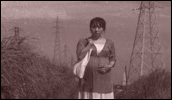Naked of Defenses
- Year
- 2008
- Original title
- Mubobi
- Japanese title
- 無防備
- Director
- Cast
- Running time
- 88 minutes
- Published
- 22 December 2009



by Roger Macy
Do contemporary Japanese films spoil the kids too much? There's nothing unique in the Japanese film industry's pursuit of the teenage market, and it's not their fault that J-pop stars don't have the international recognition that their Hollywood competitors do. But is there any sense that the Japanese majors appreciate that most viewers of international foreign-language cinema might long have left school? Are they so transfixed by the brand of 'adult film' (a euphemism even more pervasive in Japanese than in the West), that they cannot conceive of a distinct market for new, grown-up, films? This is not to say that there is not a richness of Japanese "grown-up" films, but these films are not the ones heavily pushed by Japan's dominant majors. A case in point is the work of director Masahide Ichii, who has obtained no significant distribution in Japan, but whose film Naked of Defenses, has already won a highly appreciative audience at Bradford International Festival, Frankfurt's Nippon Connection and Toronto's Shinsedai Festival.
Films for the Japanese youth market have been accused of inhabiting a 'small world', but a sure way of reaching beyond a small world of multiple dimensions and time zones is to ground the action within the confines of a few recognisable lives. When we recognise or learn the boundaries of characters' lives, we also learn their needs, hopes and disappointments. Universal emotions have been given shape from flesh that a good film makes us feel we can touch. It has been done memorably in the past in Japanese films. Take, for example, two classic films that were in the vanguard of the Japanese break-out in the fifties: Seven Samurai and Naked Island. Although these films were very different, we felt we learned the intimate layout of characters' movements and emotions.
Whilst I think Ichii's film justifies this preamble, it has no relationship in genre terms to either of those earlier films. It has no action scenes - apart from one very surprising and intimate shot at the end - and a great deal more talking and emoting than ever appears in Kaneto Shindo's Naked Island.
In Naked of Defenses the action unfolds within the daily ambit of one woman, Ritsuko, her house that she shares with her uncommunicative husband, the small factory where she moulds plastic toys, and the mile-or-so rural walk between. In English terms, it's all set within a parish with hard-pressed boundaries. Ritsuko's life is turned on its head by the arrival at the factory of Chinatsu, whom Ritsuko is appointed to train. Chinatsu, whilst fitting in well at work, is a very different personality: emotionally playful with a much more fulfilled relationship with her man. Unusually for a Japanese rural setting, there didn't seem to be any of the usual 'husband'/'wife' terms of address around this relationship. They just were, which was in stark contrast with the formal and failed relationship between Ritsuko and 'husband' (did he even have a name?).
Much of the character development takes place on the walks home. It takes a while for Chinatsu to bungle into the reason why Ritsuko will only walk, even refusing lifts offered by her work-mates. As the two make friends, walking on their own, not so much as looking at the paddy-fields either side of the road, they seem to stand for millions whose lives are a commute between two isolated ends of a cityscape parish without any real connection with the geography within which they travel. We certainly don't see the searing light of wide-open vistas. I noticed that, even when the figures cast strong shadows, the filmed scene was in subdued lighting, with Ichii and his cameraman Masafumi Seki filming almost day-for-night.
Chinatsu was obviously pregnant, even when taken on at the factory, and it is this impending birth that gives the film its impetus, along with some humiliating encounters at work, both emotional and physical. She learns, as she walks, the causes of Ritsuko's damaged heart and sees that Ritsuko needs friendship and fun. But as they divide, at the village, the camera always follows Ritsuko and Chinatsu never sees the complete unwillingness of Ritsuko's husband to reach her in any way. But when Ritsuko is finally emboldened to confront her husband, and fails, she turns to despair and falls out badly with the ripening, ever-cheerful Chinatsu, and seems to plunge into an unreachable space. Ichii does not simply leave us there, and finds a deeply moving denouement, that certainly does not tie up all the loose ends. Above all, he has let his actors, particularly the two leads, Ayoko Moriya and Sanae Konno, convey the worlds of their characters with complete truth and credibility.
Naked of Defenses was the undivided favourite of the critics at Nippon Connection this year and deservedly won the Grand Prize (and two others) at Pia Film Festival in 2008. It's a film that uses a parochial setting and stifling atmospheres to build to a crescendo that resonates with a much broader world of emotional truth. This is work that will reward a wide audience.